May 14, 2025 | 17:43 GMT +7
May 14, 2025 | 17:43 GMT +7
Hotline: 0913.378.918
May 14, 2025 | 17:43 GMT +7
Hotline: 0913.378.918
In the forthcoming period, Vietnam’s trajectory is set towards sustainable development. The One Million Hectares of High-quality Rice Project operates within the framework of the “National Action Plan on Transparent, Responsible, and Sustainable Food System Transformation until 2030,” issued by the Government earlier in March.
Dr. Dao The Anh analyzed: “Science and technology play a pivotal role in achieving many goals. It necessitates interdisciplinary collaboration across production, breeding, farming, post-harvest processes, value chain management, marketing, chain link development, traceability, carbon certification, and support for digital technology transformation.
The wealth of scientific knowledge and information required is extensive. This marks a significant transformation in the landscape of rice production. While it remains a grain of rice, there is substantial scientific and technological backing to realize the objectives of the National Action Plan.”
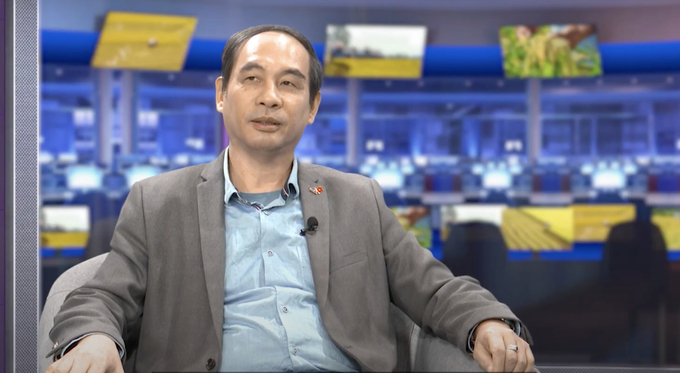
Dr. Dao The Anh, Vice President of Vietnam Academy of Agricultural Sciences (VAAS).
The Vice President asserted a critical need for robust collaboration with research institutes, universities, and international research organizations to support farmers.
An illustrative example of the contribution of science and technology is evident in the Mekong Delta. Historically, the emphasis was on enhancing productivity. Within five years, the region has successfully increased productivity to an average of approximately 6 tons per hectare, resulting in an impressive yield of 12-13 tons if two crops are cultivated.
Over the last five years, a strategic shift towards high-quality production has been enacted. This transformation is spectacular and owes much to scientific research, technology, and high-quality breeding, particularly from the Vietnam Academy of Agricultural Sciences and its member institutes.
Rice science plays a crucial role. New varieties from the Cuu Long Rice Research Institute and other VAAS members have contributed to 70-80% of the rice area in the Mekong Delta. This lays the foundation for Vietnam’s decision to launch the ambitious project of cultivating one million hectares of rice.
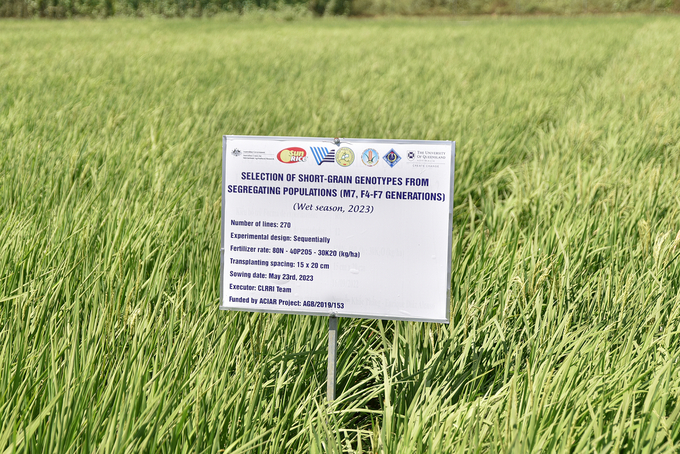
Rice cultivating model at the Cuu Long Rice Research Institute.
The One Million Hectares Project signifies a shift in thinking within agricultural development strategies and approaches to sustainable agricultural development. Today, Vietnam embrace an open-minded approach to mobilize all social forces. Departing from the traditional notion that agricultural products are solely the responsibility of farmers, the Ministry of Agriculture and Rural Development, or individual localities, the public now recognize the need for interdisciplinary engagement.
Interdisciplinary coordination extends to industry and trade, the environment, science and technology, and health. Therefore, it becomes the shared responsibility of the entire society, including consumers. Consumers, as decision-makers in purchasing products, also play a pivotal role in influencing this shift in thinking.
Considering the role of the government, Dr. Dao The Anh highlighted the goal of attracting and encouraging the participation of social actors and the international community.
“In the past, we have received support from numerous international organizations, and their keen interest is evident. It is crucial to establish a pathway for their official participation in the project. Acknowledging and documenting all contributions made by these organizations is vital for Vietnam, serving as a substantial encouragement for their continued involvement,” the Vice President said.
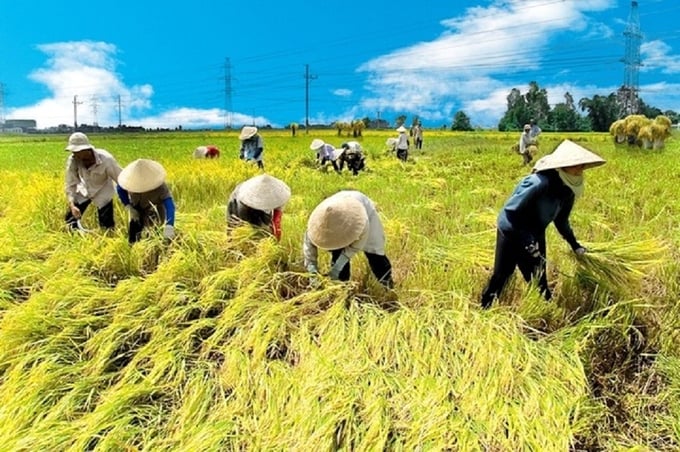
Vietnamese farmers are expected to become more professional and knowledgeable over the next ten years.
The inception of One Million Hectares Project is supported by a wealth of intellectual resources, scientific advancements, and valuable experiences. Creating an environment conducive to farmers participating in the value chain and gradually professionalizing is essential.
Vietnamese farmers are expected to become more professional and knowledgeable over the next ten years. The pathway to achieving this lies in their participation in professionally organized value chains, aligning with the global trend. With dynamism, positivity, and the active involvement of the state and international organizations, Vietnam’s agriculture have the potential to catch up and enhance the professional landscape. This, in turn, will lead to more sustainable agricultural production.
Addressing the matter of mobilizing resources, Dr. Dao The Anh informed that Vietnam’s current investment in agriculture is relatively modest and needs to catch up to other countries in the region. Budget constraints pose a challenge, necessitating solutions to mobilize additional social and international resources for investment in the agricultural sector and the One Million Hectare Project.
The scientist states: “Vietnam takes pride in a rich cultural heritage that has endured for many generations. The wet rice civilization, integral to our identity, must adapt to the socio-economic development conditions of each era. We experienced significant success during the Green Revolution, transforming from a country struggling to ensure food security in the 80s, within 3-4 years of dividing land among farmer households, to an exporting nation.
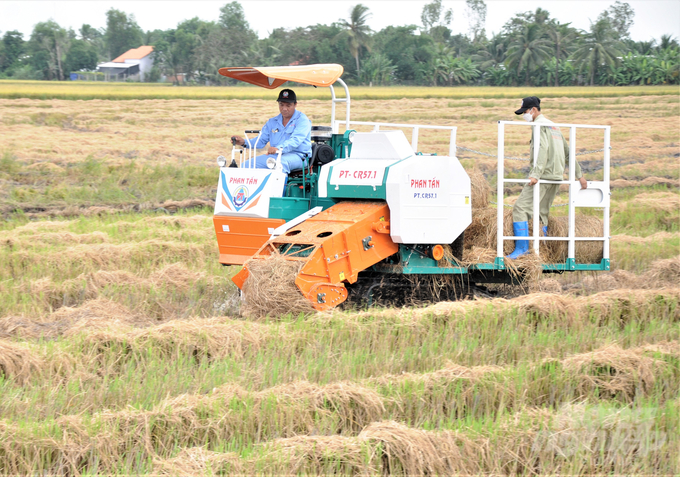
Postharvest management is a crucial part of the One Million Hectares Project.
Our current challenge is to ensure that exports remain sustainable, green, with low emissions, high quality, and the development of a more comprehensive rice brand. Early participation, from the design and planning stages of strategies and projects, stands as a critical factor in ensuring success”
Dr. Dao The Anh shared some solutions to promote ecological agriculture and reduce emissions worldwide. Ecological agriculture exhibits a considerable range of approaches, grounded in the principle of leveraging the ecological potential unique to each climate zone with varying conditions.
In the context of rice cultivation, there is a global focus on research related to System of Rice Intensification (SRI) as a means of enhancing rice production. The second aspect involves emission reduction through the utilization of by-products, such as straw.
“The International Rice Research Institute (IRRI) has actively collaborated with domestic institutes in the Mekong Delta region, devising several solutions and processes. IRRI is set to collaborate with Vietnam to finalize a comprehensive process encompassing low-emission production to low-emission post-harvest treatment, ensuring synchronization and widespread dissemination. Vietnam might be the pioneering country to implement such a synchronized process. This could serve as a commendable model, and if successful, Vietnam's experience can be shared with countries globally,” added Dr. Dao The Anh.
Translated by Quynh Chi

(VAN) Data from 10,000 farming households will help professionalize production organization and support the implementation of the One Million Hectares Program for High-Quality, Low-Emission Rice Cultivation.

(VAN) FAO Director-General QU Dongyu marks International Day of Plant Health at NENA conference.

(VAN) Deputy Minister of Agriculture and Environment Hoang Trung affirmed that floriculture and ornamental plants are a growing industry that receives significant global attention.

(VAN) The three staple crops dominating modern diets – corn, rice and wheat – are familiar to Americans. However, fourth place is held by a dark horse: cassava.
/2025/05/10/4037-3-223011_495.jpg)
(VAN) Remote sensing technology is becoming an indispensable tool in monitoring resources, developing modern agriculture, and protecting the environment in Vietnam.
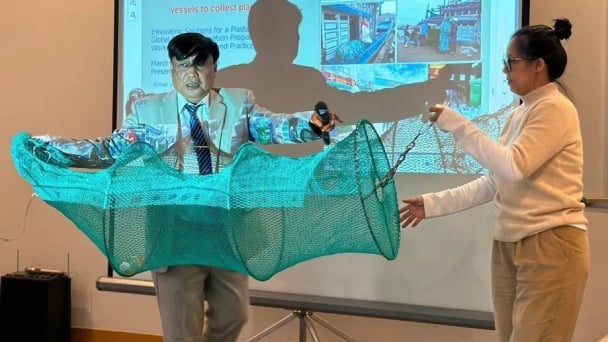
(VAN) The trash bag used on fishing vessels can withstand rough sea conditions, including level 8 to level 10 winds and waves. Notably, it can be hung anywhere on the boat.
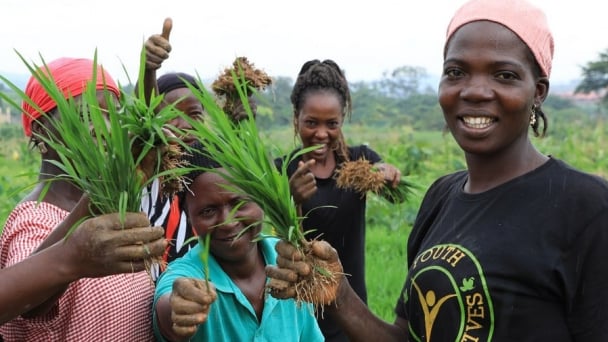
(VAN) African leaders launched the Kampala Declaration on Building Resilient and Sustainable Agrifood Systems in Africa, marking a bold step toward transforming the continent's agriculture.